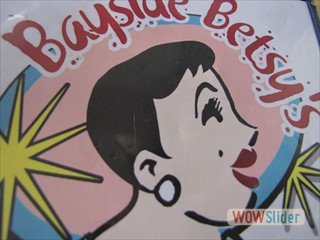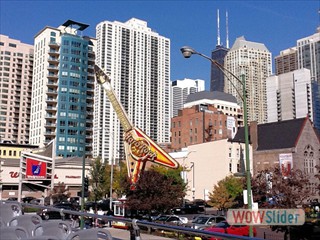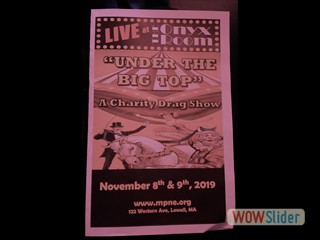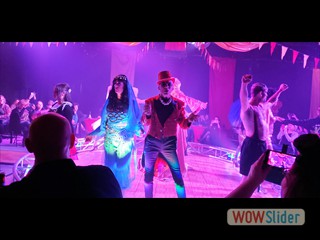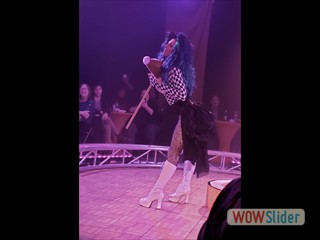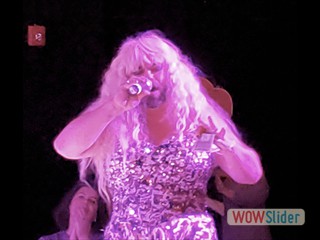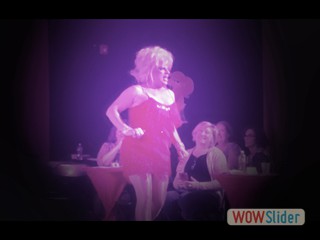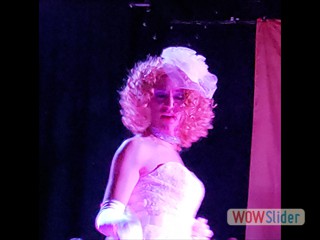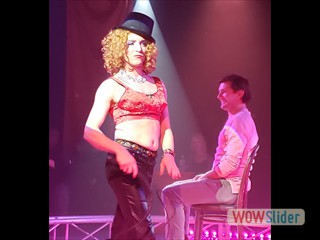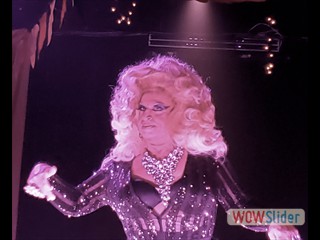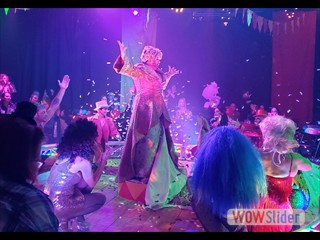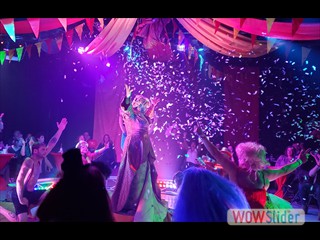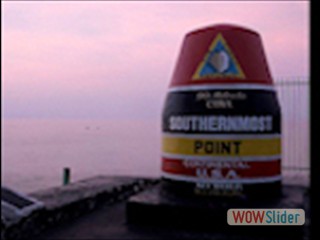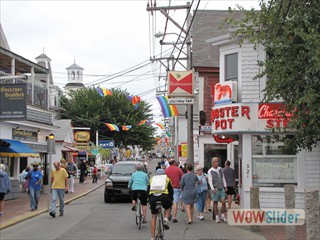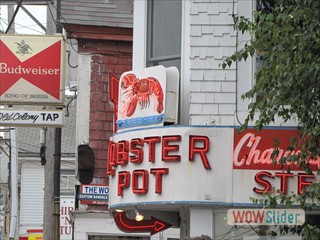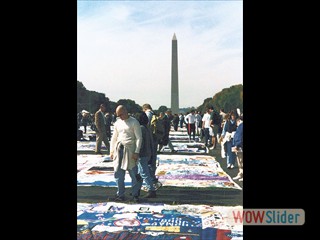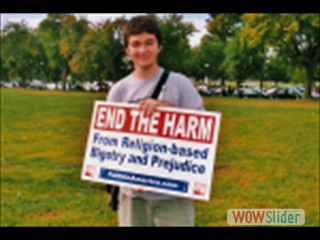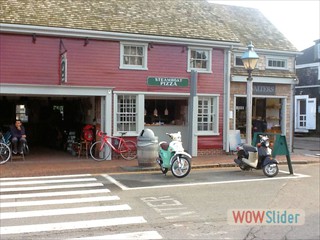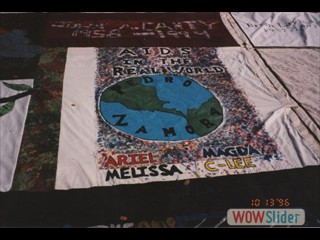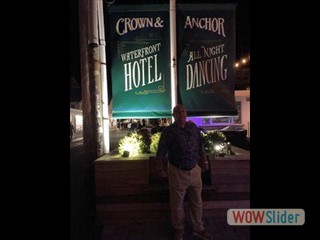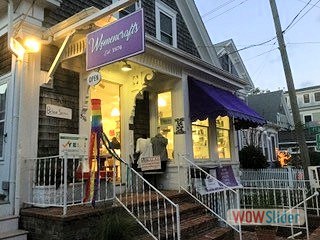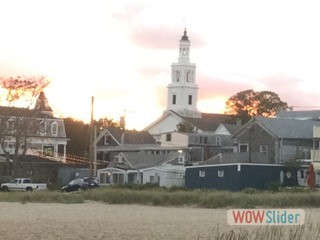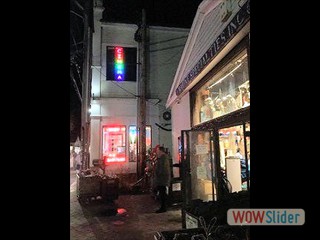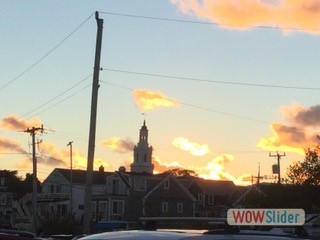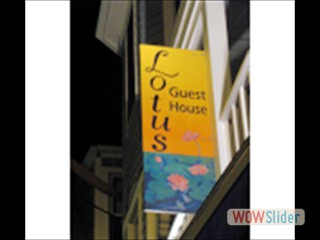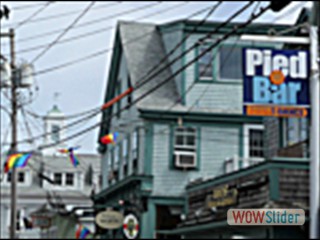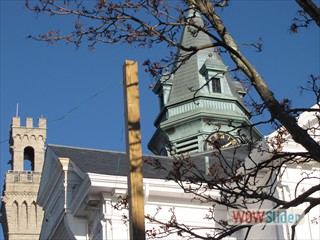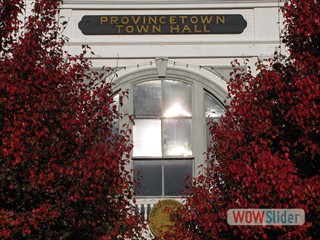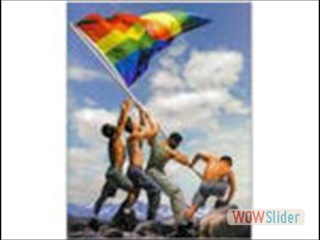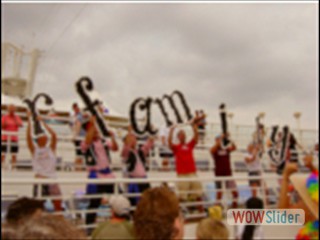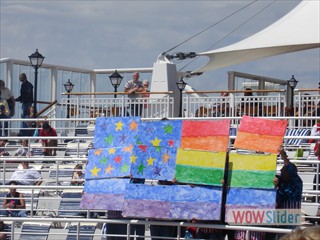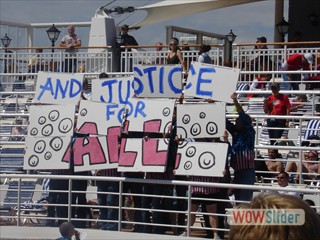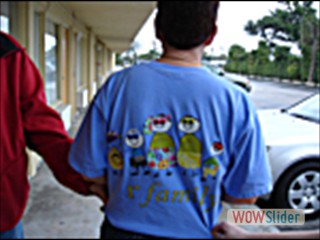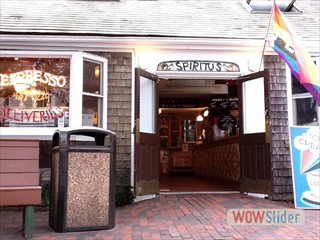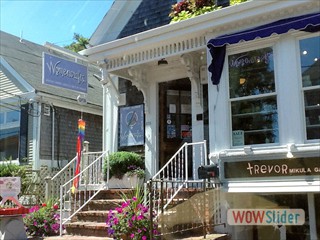
carousel jquery by WOWSlider.com v8.8
We Are Everywhere!
Books and Movies for your entertainment and education
Movies
bEST SELLERS |
||
 |
Water Lilies (2007
|
During a summer in Paris, a love triangle develops between three girls in this provocative and perceptive portrait of teen angst and nascent sexuality. The awkward Anne, the bad girl Floriane and the gawky Marie play and intense game of emotional chess as they wrestle with love, friendship and their desire for one another. |
 |
Bob's New Suit (2011) |
Bob Goodlow is a landscape gardener and handyman. His dad Buster, a patriotic ex-aerospace worker with a secret past, is now unemployed and suffering from congestive heart failure. Bob’s sister Stephanie does the books for her girlfriend Marlena’s hair salon and holds a secret of her own, just bursting to come out. Polly, their mother, helps with the struggling finances by selling antique dolls on Ebay and worries for everyone, as only mothers can. When Bob proposes to his long time love, Jenny, and his "too cool" cousin, George, proposes a get-rich quick scheme, a series of events unfold which changes their lives forever. Radical politics, gender identity, the joy of books, rare orchids, a couple of beers and one lonely Italian suit come together in this deftly interwoven story about love, family, the legacy of the 1960’s and the unexpected. |
 |
Jack & Diane (2012
|
This wildly eclectic contemporary love story between two lonely outsiders is set on the streets of New York. Jack is a skateboard-riding baby dyke, Diane is dazed and confused. With all kinds of strange happenings, this is not your mom’s lesbian romance! |
 |
Concussion (Robin Weigert) (2013
|
Abby (Robin Weigert) may have a loving family and all of the creature comforts in life, but even so, she can't fight a growing feeling of discontent. That all changes the day a speeding baseball smacks into Abby’s skull causing a concussion and unleashing a latent sexuality that sends her on an erotic journey. She is prompted to acquire a pied-a-terre in Manhattan and works as a high-class escort while keeping her sordid new career a carefully-guarded secret from her unsuspecting family. |
 |
Orange is the New Black: Season One (2013
|
From the creator of Weeds comes a heartbreaking and hilarious new series set in a women's prison. Based on Piper Kerman's acclaimed memoir, Orange Is the New Black follows engaged Brooklynite Piper Chapman (Taylor Schilling), whose wild past comes back to haunt her and results in her arrest and detention in a federal penitentiary. To pay her debt to society, Piper trades her comfortable New York life for an orange prison jumpsuit and finds unexpected conflict and camaraderie amidst an eccentric group of inmates. |
 |
Night Dragon (2008
|
In this frenetic crime thriller, a young prosecutor is caught in the crossfire when she discovers that her lover is a hitwoman for the vicious thug she is about to try. She must decide who to trust to save her life - and her relationship. |
 |
Out Late (2008
|
Out Late is an inspirational and moving documentary about five individuals who made the courageous and life–altering decision to come out as lesbian, gay, or transgender, after the age of 55. |
 |
The Topp Twins: Untouchable Girls (2009) |
Hailed by audiences as inspirational,lauded by critics as irresistible, The Topp Twins: Untouchable Girls tells the story of the world's only yodeling country singingand–comedy lesbian sibling duo—Jools and Lynda Topp—who have inspired a generation with their politics and celebration of joy. |
 |
Who Took the Bomp? Le Tigre on Tour (2010) |
Who Took the Bomp? Le Tigre on Tour follows iconic feminist electronic band Le Tigre on their 2004–2005 international tour across four continents and through ten countries. |
 |
An Affirmative Act (2010
|
In this gripping legal drama, a lesbian couple is forced to pretend they're hetero to adopt and they're found out a media storm ensues. |
 |
Lyle (Gaby Hoffman) – (2014
|
Expecting couple Leah (Gaby Hoffmann) and June (Ingrid Jungermann) move into a Brooklyn brownstone apartment with their toddler daughter Lyle. Despite the strange baby-obsessed landlady downstairs and the group of female models who live above them, the two are happy with their new apartment until a bizarre accident leads to the death of Lyle. Months later, Leah is still grief-stricken, trying to make sense of Lyle's death, her landlady's odd behaviors, and her attraction to one of the models upstairs. As Leah prepares for her home birth, she begins to suspect the neighbors are involved in a satanic pact and fears for her unborn baby. |
 |
Hannah Free (2009) |
Adapted from Claudia Allen’s award-winning play, Hannah Free is the story of a passionate but thwarted lifelong love affair between two women who have shared a lifetime of friendship and love. |
 |
The Kids Are All Right (2010) |
The most talked-about movie at the 2010 Sundance Film Festival, and the winner of the Teddy Award for Best Feature Film at the 2010 Berlin International Film Festival, The Kids Are All Right combines comedic surprise with poignant emotional truth in a funny, vibrant, and richly drawn portrait of a modern family. Nic and Jules (three-time Academy Award nominee Annette Bening and four-time Academy Award nominee Julianne Moore) are married and share a cozy suburban Southern California home with their teenage children, Joni and Laser (Mia Wasikowska and Josh Hutcherson). Nic and Jules – or, when referred to jointly by Joni, “Moms” – gave birth to and raised their children, and built a family life for the four of them. As Joni prepares to leave for college, 15-year-old Laser presses her for a big favor. He wants Joni, now 18, to help him find their biological father; the two teenagers were conceived by donor insemination. Against her better judgment, Joni honors her brother’s request and manages to make contact with “bio-dad” Paul (Mark Ruffalo), an easygoing restaurateur. The kids find themselves drawn to the confirmed bachelor’s footloose style – especially in contrast to Nic, a principled doctor who has long established their house rules. Jules, who has been looking to start a new career in landscaping, also strikes up a rapport with Paul. As Paul comes into the lives of the forthright four, an unexpected new chapter begins for them as family ties are defined, re-defined, and then re-re-defined. |
 |
Mommy Is Coming (2012) |
Pioneer filmmaker Cheryl Dunye returns with a sassy, raunchy, romantic sex comedy set in the edgy underground of Berlin where love and taboo affairs collide! Cute power femme Dylan (Lil Harlow) and studly hotel clerk Claudia (the sexy Papi Coxxx, Crash Pad series) are suffering from monogamous relationship blues. Hellbent to Claudia sets out on a gender-bending rollercoaster—now as Claude—through a subversive Berlin sex club while her lover has threesomes with her best friend (played by the incomparable Jiz Lee.) Everything comes to a climax when Dylan’s mother (world-renown sex educator Maggie Tapert) arrives in town hellbent on releasing some tension. Fun, provocative and interwoven with personal interviews, Mommy Is Coming is filled with sheer delight – in more ways than one! |
20th Century Classics |
||
 |
All About Eve (Bette Davis) (1950) |
From the moment she glimpses her idol on Broadway, Eve Harrington (Anne Baxter) strives to upstage Margo Channing (Bette Davis). After cunningly stealing Margo's role, Eve disrupts the lives of anyone close to the actress in this timeless cinematic masterpiece that earned a record 14 Oscar® Nominations, winning six—including Best Picture. The Bette Davis classic still remains the definitive Hollywood movie about theatre life. Bette, in what is possibly the quintessential Davis role, stars as Margo Channing, a first lady of the theatre whose professional and personal life is changed forever when a seemingly starstruck young woman (Anne Baxter) enters her life. A brilliantly scathing, enormously witty look behind the masks of the players who strut and fret their hour upon the stage. Celeste Holm, George Sanders, and Thelma Ritter are all superb in supporting roles in this, the ultimate bitchfest. The character of Eve was originally written as a lesbian, but only shreds of this remain in the film. There remains only two subtle scenes—involving Eve's roommate and the film's finale—which hint at her sexual orientation. |
 |
The Killing of Sister George (1968) |
One of the great and infamous lesbian "breakthrough" films of the '60s, this engrossing drama charts the story of an aging lesbian who loses both her job and her kittenish girlfriend. Beryl Reid is magnetic as the cigar-chomping George (although she refused to do any sex or kissing scenes), Susannah York is her younger child-like lover and Coral Brown is the hard-driving executive on the prowl. An entertainingly dated tale of love and loneliness that treads a strange line between comedy and sensationalist, perverted drama. Some scenes were shot in the London lesbian bar Getaway Club. The film was released on video in the mid-1980s but has been out of print since, until its recent re-release. |
 |
Lianna (1982) |
Director-writer Sayles' exceptional and humorous exploration of the coming out of the "good wife" offers a compassionate view of lesbianism, self-determination and unrest. Lianna (Linda Griffiths) confronts her husband's infidelity, falls in love with her female graduate instructor and sets out on her own. Sayles directs with a sensitive hand, and his perceptive screenplay contains many vulnerable and tender moments examining one woman's budding lesbian self-realization. |
 |
Personal Best (1982) |
This directorial debut of Oscar winner Robert Towne is a bracing celebration of athletes who live the way they play: with total passion. Mariel Hemingway plays a promising hurdler who finds needed emotional and athletic seasoning with a caring mentor (Patrice Donnelly). After the two fall in love, their relationship is threatened as both vie for a spot on the U. S. Olympic team. Personal Best’s human insights make it compelling for more than just sports fans. Months of training build into explosive moments of competitive truth. Cameras capture the charged atmosphere of the 1980 Olympic Trials. And world-class athletes (including Olympians Donnelly, and Jodi Anderson) excel as actors, bringing to the set the same poise they show on the track. |
 |
The Hunger (Catherine Deneuve) 1983 |
Catherine Deneuve stars as Miriam, an icy, elegant vampiress, hundreds of years old, who goes on the prowl for a new mate after her 200-year lover (David Bowie) quickly ages. Her affections find their way to Sara (Susan Sarandon), a doctor who has written on the subject of accelerated aging. Dripping with cinematic style and chic sexual intrigue, The Hunger is both a chilling vampire tale and a sensuous drama of lesbian attraction and desire. The two romp, fall into each other's arms and make love - and, of course, share blood. The two stars create unprecedented sensual sizzle. |
 |
Born in Flames (1983) |
One of the most important lesbian films made in the '80s, this science fiction tale of feminist activism and "women's empowerment from the underground" is set in an imagined future ten years after a socialist revolution that leaves the repressive patriarchal power structure intact. A band of female revolutionaries is led by a black lesbian and her lover/adviser. |
 |
I've Heard the Mermaids Singing (1987) |
McCarthy is nothing short of a revelation in this enchanting comedy. The film itself is cute and whimsical but it is McCarthy, as Polly, the day-dreaming romantic Gal Friday, who steals the show as well as our hearts. An avid photographer who dwells in her own fantasy world, Polly secures a job as a temp in the office of an art collector. Her innocence and joie de vivre proves to be a bracing tonic in a world dulled by pretension and greed. A film and a performance that should lift your spirits. Shelia McCarthy is enchanting as the romantically naive Polly who becomes infatuated with her female boss in this whimsical comedy. Her boss, the curator of the gallery, is a lesbian involved in a relationship with a very butch lover. |
 |
Basic Instinct (1992) |
When it opened at theatres, this thriller was surrounded by controversy for it raised a red flag for gays, lesbians and feminists with its shockingly "retro" stereotypes of man-hating lesbians with a "basic instinct" for murder. Essentially an adolescent sex fantasy disguised as a murder mystery, the film follows Michael Douglas as a burned-out cop who inadvisedly falls in "lust" with the prime suspect in a series of brutal icepick murders, lasciviously portrayed by Sharon Stone. Verhoeven, as always, directs with a sense of style and atmosphere which elevates it above the average action/thriller, but at the heart of the film is Joe Eszterhas' multi-million dollar screenplay which, while particularly hateful of women, is misanthropic on the whole. Worthy of controversy? Is it the dispicable leader of "the lesbian as killer" genre or an entertainingly slick and sexy tale of a lesbian who both enjoys the pleasure of other women as well as the pleasure of sticking ice picks into the puffy flesh of males? |
 |
Go Fish(1994) |
An unlikely candidate to join the ranks of epochal lesbian-themed films, this delightful yet knowing independent romantic comedy is more than simply the Desert Hearts for the '90s. Made on an extremely low budget, filmed in black and white, and featuring primarily non-professionals in major roles, Go Fish's grittiness helps in making its characters more honest and accessible. Seriously cute and boyishly hip Max (Turner), after a drought of ten months, is looking for love. She possibly finds it in the person of Ely (V.S. Brodie), a semi-dorky, slightly older woman. How the two women meet, court and maybe even get together is wonderfully handled in a light, effervescent fashion that combines to paint a finely detailed and on-target depiction of young lesbian life. What the film lacks in professional pizzazz and slickness is more than made up by its vividly drawn characters and witty screenplay. |
 |
The Incredibly True Adventure of Two Girls in Love (1995) |
This thoroughly enjoyable lesbian first love story is a startling film debut by independent filmmaker Maggenti. Randy (Laurel Holloman) is a white high school tomboy living with her lesbian aunt. Evie (Nicole Parker) is a beautiful and pampered black deb from the right side of the tracks. They meet and love blossoms despite their differences. But trouble brews for the two as both of their families undertake to break the lovers apart. A long-awaited "wholesome lesbian comedy and romance" which ignores queer politics and prejudice and concentrates on the two young women's intense attraction for each other. Not as big city grunge as Go Fish nor as jaded as Bar Girls, Two Girls is a terrifically sweet low-budget romantic comedy that could be described as a "queer John Hughes comedy" -- when he was in his prime, of course. |
 |
The Watermelon Woman (1996) |
Cheryl (writer/director Cheryl Dunye), a young black woman working in a video store, s making a documentary about an obscure black actress from the 1930's. When she discovers that the actress (known as "the Watermelon Woman") had a white lesbian lover, Cheryl just happens to fall in love with a very cute white woman herself! Attacked by conservative Congressmen, winner of multiple audience awards in major film festivals and lavishly praised by audiences for being charming and courageous, this startlingly fresh debut is, according to B. Ruby Rich of the San Francisco Bay Guardian "a wonderfully inventive journey through the annals of film history, African American culture, dyke attitudes, race relations and the mysteries of lesbian attraction. Did I mention this is a comedy too?" |
 |
Late Bloomers (1997) |
Novice filmmakers and sisters Julia and Gretchen Dyer have produced a delightfully romantic lesbian coming-out love story. Set in all-American suburbia, the comedy-drama is set in Eleanor Roosevelt High School where Dinah, a gangly fortysomething math teacher and basketball coach, becomes friends with the cute but doughy Carly, a married school secretary and mother of two. What begins as innocent friendship soon becomes much more as Carly, dulled by years of domesticity, is intrigued and attracted to the shy Dinah. As the two become more bold in their public affection for each other, Carly's husband, her sensitive daughter and young son, as well as neighbors and coworkers begin to talk and become increasingly troubled. But romance triumphs over all adversities as the two women throw caution to the wind and fall passionately in love with each other. Homophobia, and the disruption of the family unit by lesbianism is explored, but it is the invigoratingly tender and refreshingly romantic nature of the two women's love affair that prevails. A bit too sugary (and fantastically unrealistic) for some, but sweetness and fantasy have their place. |
 |
High Art (1998) |
One of the best lesbian films of the 1990s, High Art is an emotional, thought-provoking drama set in New York’s downtown lofts which centers around a young (hitherto straight) woman’s sexual interest in a slightly older woman. Syd (Michell) is a vanilla-flavored, blonde-haired woman working as an intern at a high-powered photo magazine. But she’s far from happy just quietly climbing the corporate ladder by day and living with her sweet boyfriend at night. For she (much like a pretty fox stalking a chicken coop) finds her ticket to fame and lesbianism in the person of Lucy Berliner (Sheedy), a burned-out coupon-clipping ex-photographer living a decadent, druggy life with Greta (Clarkson), a German actress wafting through life on a cloud of drugs, cigarette smoke and memories of her fast-paced life as a Fassbinder actress. Syd’s repressed lesbian urges, are kicked into overdrive as she becomes entranced with the cool, thin Lucy. Their relationship sparks Lucy’s creative juices and offers a career opportunity for Syd. The only losers are their ex’s. A film that deserves to be seen twice although (or because) director Cholodenko sends out mixed signals on what love is and can be. Is love the close bond between two people, insular from outside influences (Lucy and Greta), or is driven by economic (capitalistic) forces (Lucy and Syd)? For this writer, the relationship of a burned-out Lucy with her nearly somnolent girlfriend Greta is far more romantic and in, an odd way, nurturing, than the career-oriented affair between Lucy and Syd, a relationship built on dishonesty (advance Syd’s career by signing her for the mag), deceit (get rid of the other woman), manipulation (get Lucy to stop drugs and reenter mainstream life, Lucy gets a second chance with a freshly-scrubbed young lass), and callousness (Syd’s use of her trying-to-be understanding boyfriend and Lucy’s painful indifference to Greta’s insouciant approach to their love). A film which offers intriguing ideas on the nature of love. |
 |
Better Than Chocolate (1999) |
A spicy romantic comedy about a romance between Maggie and Kim and a visiting Mom! |
 |
Aimée & Jaguar (1999) |
Aimee & Jaguar is a rare film, it leaves the audience weeping about the dire consequences an intense love has wrought, but exhilarated over the existence of such love. From the first bars of the mournful lush score we know this story won't end well, but the journey takes us to a place of love we have seldom seen in a film. Aimee tells the true story of Lilly (Kohler) and Felice (Schrader), lovers in WWII Germany. Lilly Wust is married to a Nazi officer away at the front and has many affairs while her handsome husband is gone. Felice is the leading light of her circle of lesbians, in love with Ilse (Wokalek), but smitten with Lilly. Felice knows that the relationship is impossible, but she doesn't care, she's headstrong and she's met her soul mate. Felice is not only a lesbian, but Jewish as well…prime target for the Nazis to ship off to the camps. The story is told through flashbacks when Lilly is an old woman being brought to a retirement home where she happens to meet another of their circle from the war. A touching film that tells an intense story told without Hollywood syrup, Bravo! |
21st Century Classics |
||
 |
Kissing Jessica Stein (2002) |
A fresh spin on the "straight" girl-meets-girl comedy. A witty and sparkling comedy that appeals to both lesbians and gay men. |
 |
April's Shower (2003) |
This witty Altman-esque tour de force about the pleasures and perils of love in all its permutations has as many twists and turns as a San Francisco street. |
 |
Looking for Cheyenne (2006) |
In this awe-inspiring journey, two lesbian lovers are united with burning passion and profound love, but not without the complications of idealistic principles in a modern society. |
 |
Butch Jamie (2008) |
In this witty charmer, Jamie's acting career is on the skids with even her roommate's diva cat getting more roles than her. What's a butch to do when she gets an offer she can't refuse? |
 |
The World Unseen (2008) |
A sweeping romantic lesbian tale set in early apartheid-era South Africa in 1952. Donning men’s clothes, the spirited café owner, Amina (enthralling Sheetal Sheth, stands out in the community by fighting the police who come every week to harass her African business partner and patrons. On one such day, a gorgeous Indian woman named Miriam (brilliant Bollywood actress Lisa Ray) enters the café and powerful sparks fly between the two. |
 |
Room in Rome (2010) |
Like the erotic classic Last Tango in Paris, the new drama Room in Rome is a controversial, boundary–breaking film about two women who bare their bodies and their souls during one memorable night in a hotel in Rome. Writer–director Julio Medem (the international smash hit Sex and Lucía) returns with this provocative tale of Alba and Natasha. Two strangers meet, tentatively flirt and then head to Alba's hotel room where they exchange life stories amidst passionate bouts of love–making. The stunning actresses Elena Anaya (Pedro Almodóvar's Talk to Her, Sex and Lucía) and Natasha Yarovenko (Diary of a Nymphomaniac) unflinchingly expose their deepest desires: the two women grow increasingly honest emotionally the closer they get physically. Certain to be a landmark in cinematic sexuality, Room in Rome is a serious and sexy foray into uncharted territory. |
 |
Edie & Thea: A Very Long Engagement (2010) |
Directed by Susan Muska and Gréta Olafsdóttir (the pair behind the sensational 1997 doc The Brandon Teena Story) comes Edie and Thea: A Very Long Engagement. Winner of countless awards for Best Documentary at festivals around the world, this moving film is a love story about two remarkable women whose passion and commitment to each other is an inspiration to all. |
History, Politics, Religion |
||
 |
Word Is Out: Stories from Some of Our Lives (1978) |
Word is Out debuted in 1977 as the first feature-length documentary about lesbian and gay identity made by gay filmmakers. The Mariposa Film Group comprising of Peter Adair, Nancy Adair, Andrew Brown, Rob Epstein (The Times of Harvey Milk), Lucy Massie Phenix and Veronica Selver sought to create a film free of political didactics and to simply tell the stories of growing up gay in America. After conducting 140 interviews, the filmmakers selected twenty-six people of various lifestyles, races, ages and backgrounds. What they achieved was a cornerstone in gay rights. Audiences were startled and moved by the stories told by the film’s participants. Word is Out quickly became a landmark in cinema, but time had taken its toll on the existing prints and the film was rarely seen. The Outfest Legacy Project and UCLA Film & Television Archive restored Word is Out with the generous contribution of the David Bohnett Foundation, creating a high-definition video for this DVD premiere. Ripe for rediscovery, the film is at once a record of past struggles, an occasion for reflecting on how far we still have to go, and a masterpiece of the documentary form. Viewers will be charmed, touched and perhaps galvanized to action by the film’s emotionally breathtaking blend of candor, humor, love and humanity. |
 |
Pride Divide (1997) |
From the director of the inspiring Last Call at Mauds comes this intriguing and humorous documentary on the battle between the sexes. But director Poirier and producer Karne Kiss offer a uniquely contemporary spin on the often told subject -- that is the hidden gender gap between gay men and lesbians. Although united in the struggle for civil liberties and social acceptance since the founding of the homophile movement in the 1940s, gay men and lesbians have always made for an uneasy partnership. Their unity always threatened by both the divergent goals of liberation as well as the age-old struggle of man vs. female. This gender gap is examined and analyzed in a series of wonderfully intercut interviews with such queer luminaries as Joan Jett Blakk, Kate Clinton, Martin Duberman, Harry Hay, Michael Musto, Camille Paglia, Michael Goff, Barbara Gittings, Sarah Schulman, Michelangelo Signorile and several others. Fascinating, entertaining and topical -- and if you dare, bring a friend of the opposite sex! |
 |
Lavender Limelight (1997) |
This acclaimed film goes behind the scenes to reveal America's most successful lesbian directors, who enlighten and entertain as they explore their sexual identity, growing up gay, inspirations and techniques, Hollywood vs. independent, and of course, love and sex -- on screen and off. The conversations are intimate, the topics unlimited, and the clips from their work enthralling! Also available on DVD in a separate entry linked below in related products. |
 |
History Lessons (2000) |
Barbara Hammer's (Nitrate Kisses) latest project is a video & film collage of images of women that shows just how pervasive lesbian imagery is in our culture. Piecing together archival newsreel footage with dramatic recreations, old lesbian porn and classic stills Ms. Hammer creates a unique crazy quilt of humor, sensuality and beauty. Sex education and health class instructional films will now be seen a whole new light after one sees this film. The director has located headlines from trashy tabloid newspapers including: "Worse than Lesbians!", "Lesbian Lovers Nabbed in Armed Robbery", and the best "Prison Made Me A Lesbian". Incorporated in the film is footage from early lesbian porno movies that are sexy and fun - who knew these films existed? History Lessons features an original score that fuses avant-garde electronica with historical sound clips and humorous original folk songs to forge sounds as inventive as the marvelous film they accompany. |
 |
Prom Night in Kansas City (2002) |
Filmmaker Hali Lee thought her own prom was a real let down, yet she continued to be fascinated by the endurance of this quintessentially American coming-of-age ritual. To discover why, she returns to her hometown of Kansas City to track the pomp, preparations, and individual stories of would be promgoers as diverse as America itself. Among the promgoers: Smurf, an inner-city track star who is gunning for Prom King; Nick, who attends No-Dancing-or-Spaghetti-Straps celebration of an ultra-conservative Christian school; Gayla, an openly lesbian teen as she attend an alternative event sponsored by a local gay & lesbian group; and Oliver, an anti- prom slacker that takes his video camera as his date. With wry humor and an analytical eye, Lee and co-director Peter von Ziesgesar breezily capture the fabricated fantasies, kitsch and pageantry that keep proms eternal. |
 |
Flag Wars (2003) |
What happens when black working-class families are faced with an influx of white gay homebuyers in their neighborhood? Filmed over four years, Flag Wars is a clear-eyed look inside the conflicts that surface in one inner-city Columbus, Ohio, community. The film’s as-it-is-happening verité style captures the raw emotions of unguarded moments between neighbors: the lesbian realtor who sells the area’s Victorian homes; a new homebuyer whose move to the area is his chance to live openly as a gay man; two longtime residents who are in court because of new housing codes; and the judge who hears their cases. From porch conversations and family dinners to public hearings and street protests, Flag Wars provides a rare and extraordinarily intimate account of the social and human consequences of capitalism and the pursuit of the “American Dream” told through the lives of residents in a community confronted by gentrification. |
 |
Tying the Knot (2004) |
Kicking off with astounding, recently discovered footage of a 1971 act of public disobedience — in which gay hippies from the Gay Activists Alliance invaded NYC’s marriage bureau — Tying the Knot quickly moves into the present-day battle for same-sex marriage equality. Director Jim de Sève mixes politics with moving personal accounts that illustrate and humanize why this issue is so crucial. Lois, a lesbian police officer, is killed in the line of duty. Although she married her partner Mickie in 1991, their lack of legal recognition leaves Mickie in a bitter struggle for pension/survivor benefits with Lois’ family. Rural gay Sam has it even worse: after Earl, his husband of 22 years, passes away, the destitute Sam is in danger of losing their home to Earl’s homophobic redneck cousins, who contest the will and routinely terrorize Sam. De Sève juxtaposes these tense, involving stories against examinations of the politics, history and other countries’ policies regarding same-sex marriage rights. A tremendous, accomplished work shot over three years in several countries (including Canada and the Netherlands), Tying The Knot is a must-see. |
 |
Outrage (2009) |
From Academy Award-nominated documentary filmmaker Kirby Dick (This Film Is Not Yet Rated) comes Outrage, a searing indictment of the hypocrisy of closeted politicians with appalling gay rights voting records who actively campaign against the LGBT community they covertly belong to. Boldly revealing the hidden lives of some of the United States' most powerful policymakers, Outrage takes a comprehensive look at the harm they've inflicted on millions of Americans, and examines the media's complicity in keeping their secrets. With analysis from prominent members of the gay community such as Congressman Barney Frank, former NJ Governor Jim McGreevey, activist Larry Kramer, radio personality Michelangelo Signorile, and openly gay congresswoman Tammy Baldwin (Representative, Wisconsin 2nd district), Outrage probes deeply into the psychology of this double lifestyle, the ethics of outing closeted politicians, the double standards that the media upholds in its coverage of the sex lives of gay public figures, and much more. |
 |
Before & After Stonewall (2010) |
On June 28, 1969, the NYPD raided the Stonewall Inn, a mafia-run gay bar in New York’s Greenwich Village, leading to three nights of rioting by the city’s gay community. With this outpouring of courage and unity the gay pride movement had begun. These two seminal documentaries tell the remarkable tale of how homosexuals, a heretofore hidden and despised group, became a vibrant and integral part of America’s family, and, indeed, the world community. Before Stonewall Experience the fascinating and unforgettable history of homosexuality in America through eye-opening historical footage and interviews with those who lived through it. Revealing and often humorous, this widely acclaimed film re-lives events from the 1920s up until the fevered 1969 riots. Narrated by Rita Mae Brown. After Stonewall After Stonewall chronicles lesbian and gay life from the 1969 Stonewall riots to the new century, capturing the hard work, tragic defeats and exciting victories experienced. It also explores the impact that AIDS had on the movement, and the new direction it took as a result. Narrated by Melissa Etheridge. |
